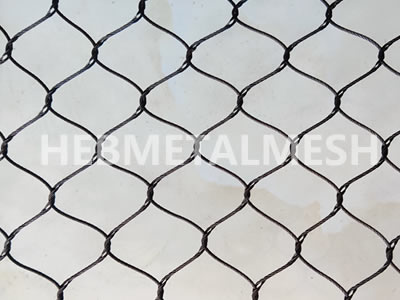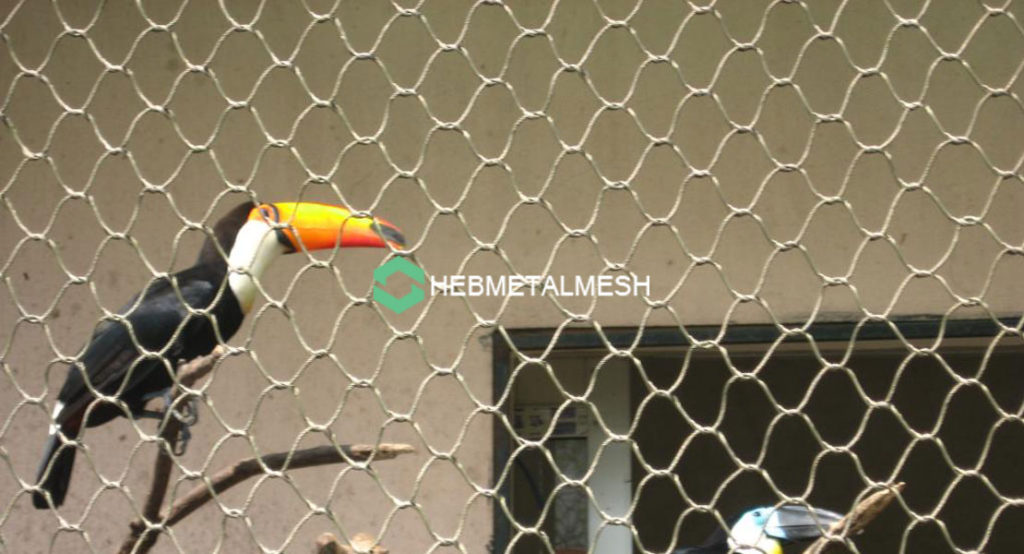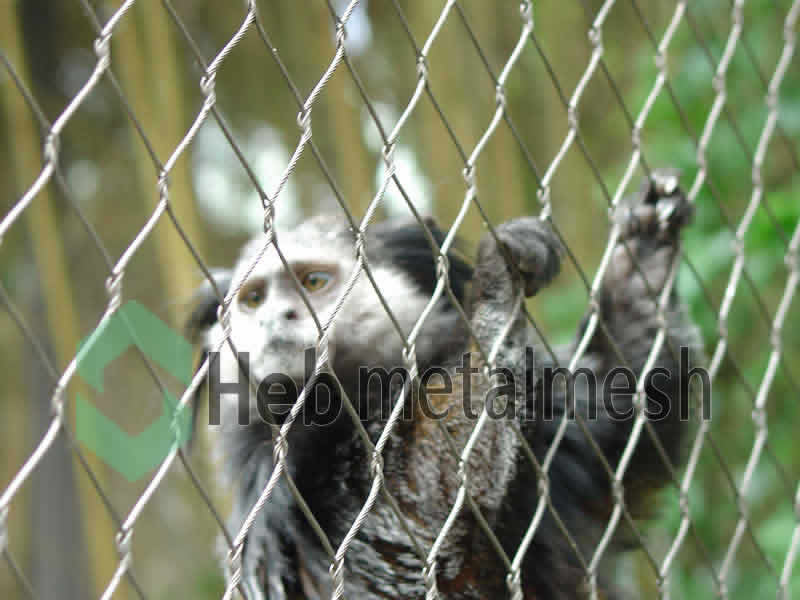As a pet owner, ensuring your pet’s comfort and safety is of utmost importance. One way to achieve this is by choosing the right cage wire for your pet’s enclosure. With so many options available, it can be overwhelming to know which one to choose. In this guide, I will provide you with all the essential information you need to know about cage wire to make an informed decision for your pet’s well-being.

Introduction to Cage Wire
Cage wire is a type of wire mesh used to build enclosures for pets. It is made of either galvanized steel or stainless steel and comes in various sizes and shapes.
Cage wire has several uses, including building cages for birds, rabbits, guinea pigs, and other small animals. It is also used in building fencing for livestock and poultry.
When it comes to choosing cage wire for your pet, it is essential to consider several factors to ensure that you select the right wire for your pet’s needs.
Types of Cage Wire
There are several types of cage mesh available, and each type has its unique features and benefits.
Galvanized Cage Wire
Galvanized cage wire is the most common type of wire mesh used for pet enclosures. It is made by coating the wire with a layer of zinc, which provides protection against rust and corrosion.
Galvanized cage wire comes in various sizes and shapes, including square, rectangular, and hexagonal. It is also available in different gauges, with the thicker gauge being more durable and long-lasting.
Stainless Steel Cage Wire
Stainless steel cage wire is a premium option that is more expensive than galvanized wire. It is made of high-quality stainless steel, which is resistant to rust and corrosion.
Stainless steel cage wire is more durable than galvanized wire and is ideal for pets that are aggressive chewers. It is also easy to clean and maintain, making it a popular choice for pet owners who want a long-lasting and low-maintenance option.
Vinyl Coated Cage Wire
Vinyl coated cage mesh is another option that is gaining popularity among pet owners. It is made of galvanized wire coated with vinyl, which provides protection against rust and corrosion while giving the wire a colorful and attractive appearance.
Vinyl coated cage h is available in various colors, making it an excellent choice for pet owners who want to customize their pet’s enclosure. It is also easy to clean and maintain, making it a popular option for indoor cages.
Factors to Consider When Choosing Cage Wire
Choosing the right cage wire for your pet’s enclosure is crucial for their well-being. Here are some factors to consider when selecting cage mesh:
Size of the Mesh
The size of the mesh is an essential factor to consider when choosing cage wire. The mesh size should be small enough to prevent your pet from escaping or getting stuck in between the wire.
The mesh size should also be large enough to allow for proper ventilation and airflow. For birds, the mesh size should be small enough to prevent their heads from getting stuck in between the wire.
Gauge of the Wire
The gauge of the wire refers to the thickness of the wire. A thicker gauge wire is more durable and long-lasting than a thinner gauge wire.
When choosing cage wire, it is essential to consider the size and weight of your pet. Larger and heavier pets require thicker gauge wire to ensure that the wire can support their weight.
Corrosion Resistance
Cage wire is exposed to various elements, including moisture, which can cause rust and corrosion. It is essential to select a cage mesh that is resistant to rust and corrosion to ensure that it lasts longer and remains safe for your pet.
Galvanized and stainless steel cage wire are both excellent options for their corrosion resistance properties.
Ease of Cleaning
Cleaning and maintaining your pet’s enclosure is essential for their well-being. It is essential to choose a cage wire that is easy to clean and maintain.
Vinyl coated cage wire is easy to clean and maintain, making it a popular option for indoor cages. Stainless steel cage mesh is also easy to clean and maintain, making it an excellent option for outdoor cages.
Benefits of Using High-Quality Cage Mesh
Using high-quality cage wire for your pet’s enclosure has several benefits, including:
Durability
High-quality cage wire is more durable and long-lasting than low-quality wire. This means that you won’t need to replace the wire frequently, saving you money in the long run.
Safety
High-quality cage mesh is designed to be safe for pets. It is made of materials that are non-toxic and free from harmful chemicals. It is also designed to prevent pets from escaping or getting injured.
Easy to Clean and Maintain
High-quality cage wire is easy to clean and maintain, making it a low-maintenance option for pet owners. This means that you can spend more time enjoying your pet’s company and less time cleaning their enclosure.
Common Mistakes to Avoid When Buying Cage Wire
When buying cage wire, it is essential to avoid making common mistakes that can compromise your pet’s safety and well-being. Here are some mistakes to avoid:
Choosing the Wrong Gauge
Choosing the wrong gauge wire can compromise your pet’s safety. Thinner gauge wire may not be strong enough to support your pet’s weight, while thicker gauge wire may be too heavy and difficult to work with.
Choosing the Wrong Mesh Size
Choosing the wrong mesh size can also be a safety issue for your pet. A mesh size that is too large can allow your pet to escape or get stuck in between the wire, while a mesh size that is too small can restrict airflow and ventilation.
Choosing Low-Quality Wire
Choosing low-quality wire may save you money in the short run, but it can compromise your pet’s safety and well-being in the long run. Low-quality wire is often less durable and may contain harmful chemicals that can be toxic to your pet.
How to Clean and Maintain Your Cage Mesh
Cleaning and maintaining your pet’s enclosure is essential for their well-being. Here are some tips on how to clean and maintain your cage wire:
Regular Cleaning
It is essential to clean your pet’s enclosure regularly to prevent the buildup of dirt, debris, and bacteria. Use a mild detergent and warm water to clean the wire, then rinse thoroughly with clean water.
Disinfecting
Disinfecting your pet’s enclosure is also essential to prevent the spread of bacteria and disease. Use a pet-safe disinfectant to clean the wire, then rinse thoroughly with clean water.
Inspecting
Inspect your pet’s enclosure regularly to check for any signs of wear and tear or damage to the wire. Replace any damaged wire immediately to prevent your pet from escaping or getting injured.
Top Cage Wire Brands and Products
Choosing the right cage wire for your pet’s enclosure can be challenging, with so many options available. Here are some top cage wire brands and products that you can consider:
1. Galvanized Cage Wire
- YARDGARD Galvanized Welded Wire Fence
- Fencer Wire Galvanized Welded Wire Mesh
2. Stainless Steel Cage Wire
- T-304 Stainless Steel Welded Wire Mesh
3. Vinyl Coated Cage Wire
- Black Vinyl Coated Welded Wire Fence
- Green Vinyl Coated Welded Wire Mesh
Alternatives to Traditional Cage Wire
If you are looking for an alternative to traditional cage wire, there are several options available. Here are some alternatives to consider:
1. Acrylic
Acrylic is a transparent material that is lightweight and durable. It is an excellent option for building bird cages and aquariums.
2. PVC
PVC is a plastic material that is lightweight and durable. It is an excellent option for building outdoor enclosures for small animals.
3. Mesh Fabric
Mesh fabric is a breathable material that is easy to work with. It is an excellent option for building enclosures for birds and small animals.
Tips for Ensuring Your Pet’s Safety and Comfort with Cage Wire
Ensuring your pet’s safety and comfort is essential when using cage wire for their enclosure. Here are some tips to help you achieve this:
1. Choose the Right Size and Gauge
Choosing the right size and gauge wire is crucial for your pet’s safety and well-being. Ensure that the wire is strong enough to support your pet’s weight and small enough to prevent them from escaping or getting stuck in between the wire.
2. Provide Adequate Ventilation and Airflow
Proper ventilation and airflow are essential for your pet’s health and well-being. Ensure that the mesh size is large enough to allow for proper ventilation and airflow.
3. Regularly Clean and Maintain the Wire
Regularly cleaning and maintaining the wire is essential for your pet’s health and well-being. Clean the wire regularly to prevent the buildup of dirt, debris, and bacteria. Inspect the wire regularly for signs of wear and tear or damage.
Conclusion: Making the Right Choice for Your Pet’s Well-being
Choosing the right cage wire for your pet’s enclosure is crucial for their well-being. Consider the factors discussed in this guide when selecting cage wire, and avoid common mistakes that can compromise your pet’s safety and comfort.
Remember to regularly clean and maintain the wire to ensure that it lasts longer and remains safe for your pet. By following these tips, you can provide your pet with a safe and comfortable environment that promotes their health and well-being.


